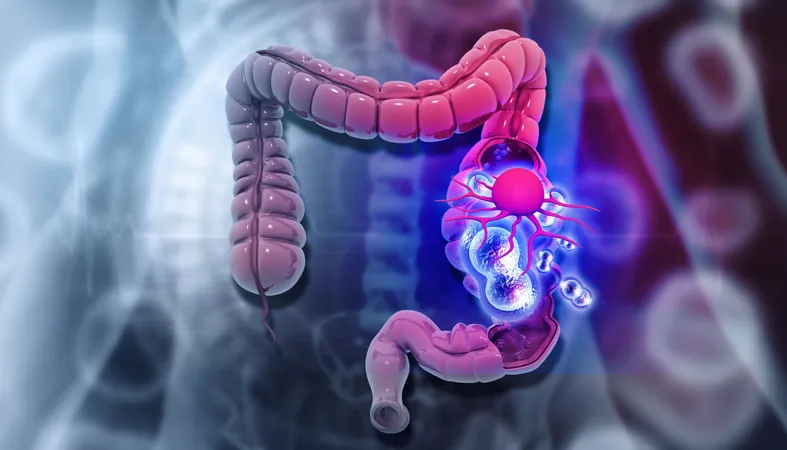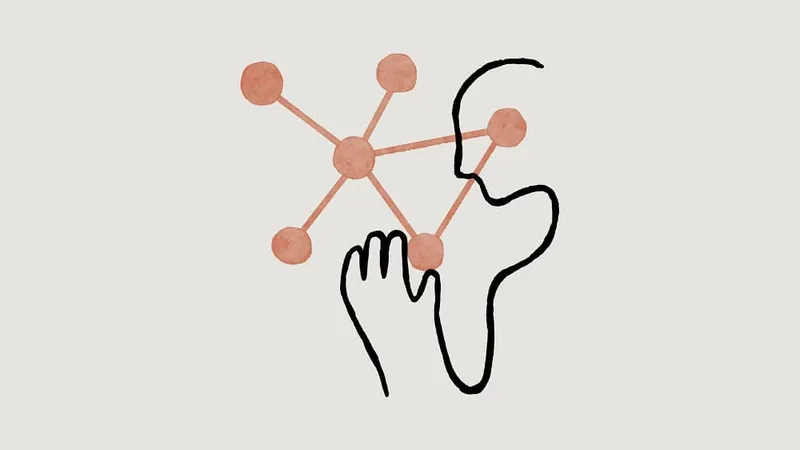
Revolutionary Study Unveils Link Between Epigenetic Aging and Colorectal Cancer Risk in Postmenopausal Women
2025-08-20
Author: Li
A groundbreaking new study published in Aging has revealed a startling connection between accelerated epigenetic aging and an increased risk of colorectal cancer (CRC) in postmenopausal women. The research highlights that certain lifestyle choices might help lessen this looming danger.
Led by Dr. Su Yon Jung from UCLA, the study dug deep into the Women’s Health Initiative Database, encompassing health records and genetic data from white women aged 50 to 79. Blood samples, some collected as far back as 17 years before CRC diagnoses, were evaluated using three advanced epigenetic clocks: Horvath’s, Hannum’s, and Levine’s. These clocks assess biological age at a molecular level by analyzing DNA methylation changes.
Key Findings That Could Change the Game
The researchers uncovered that women whose epigenetic age surpassed their chronological age were notably more at risk of developing CRC. Specifically, a mere one-year increase in DNA methylation age was linked to a staggering 10% rise in CRC risk. When examined over a decade, the associated risk heightened even further!
Diet: The Unexpected Hero?
Diet played a crucial role in this equation. Women showing signs of accelerated epigenetic aging who consumed a diet poor in fruits and vegetables faced a dramatically higher risk, with some analyses suggesting a risk increase by over 20 times! In a surprising twist, those adhering to a diet rich in fruits and vegetables managed to dodge elevated CRC risk, even when showing markers of biological aging.
The Impact of Reproductive History
Additionally, the study examined reproductive factors, revealing that women who had undergone a bilateral oophorectomy before natural menopause exhibited elevated epigenetic aging and a pronounced CRC risk. This finding reinforces previous studies indicating that early loss of ovarian function could play a role in cancer development through hormonal changes.
Validation and Future Implications
To cement these findings, researchers cross-validated results with multiple independent datasets, including both blood and tissue-based cohorts. The consistency of these results suggests that blood-based epigenetic markers could serve as vital predictive tools for CRC risk.
The authors stress the significance of melding molecular aging measures with traditional risk metrics, claiming that these insights might transform CRC risk stratification strategies for older individuals.
Why This Matters!
Colorectal cancer stands out as one of the leading causes of cancer deaths globally, predominantly affecting individuals aged 50 and above. While chronological age is a known risk factor, it fails to capture the nuances of biological aging. Employing epigenetic clocks enables a more accurate assessment of cellular aging and its possible impact on cancer development.
The study further posits that epigenetic aging markers, detectable years before a cancer diagnosis, can help pinpoint individuals at heightened risk who could greatly benefit from increased monitoring or preventive strategies. Plus, the revelations around dietary impacts open up exciting avenues for mitigating risks through lifestyle changes.
The authors acknowledge, however, that while their study presents novel insights, larger and more diverse studies are necessary due to some limitations, including a relatively small sample size and focusing solely on white postmenopausal women.
Conclusion: A Call to Action!
In conclusion, this pioneering study underscores a formidable link between accelerated epigenetic aging and colorectal cancer risk among postmenopausal women, especially those who lead a diet low in fruits and vegetables or have a history of oophorectomy. These findings illuminate the potential of blood-based epigenetic biomarkers as invaluable tools for early risk assessment, while also pointing to dietary improvements as a key area for proactive health strategies.


 Brasil (PT)
Brasil (PT)
 Canada (EN)
Canada (EN)
 Chile (ES)
Chile (ES)
 Česko (CS)
Česko (CS)
 대한민국 (KO)
대한민국 (KO)
 España (ES)
España (ES)
 France (FR)
France (FR)
 Hong Kong (EN)
Hong Kong (EN)
 Italia (IT)
Italia (IT)
 日本 (JA)
日本 (JA)
 Magyarország (HU)
Magyarország (HU)
 Norge (NO)
Norge (NO)
 Polska (PL)
Polska (PL)
 Schweiz (DE)
Schweiz (DE)
 Singapore (EN)
Singapore (EN)
 Sverige (SV)
Sverige (SV)
 Suomi (FI)
Suomi (FI)
 Türkiye (TR)
Türkiye (TR)
 الإمارات العربية المتحدة (AR)
الإمارات العربية المتحدة (AR)